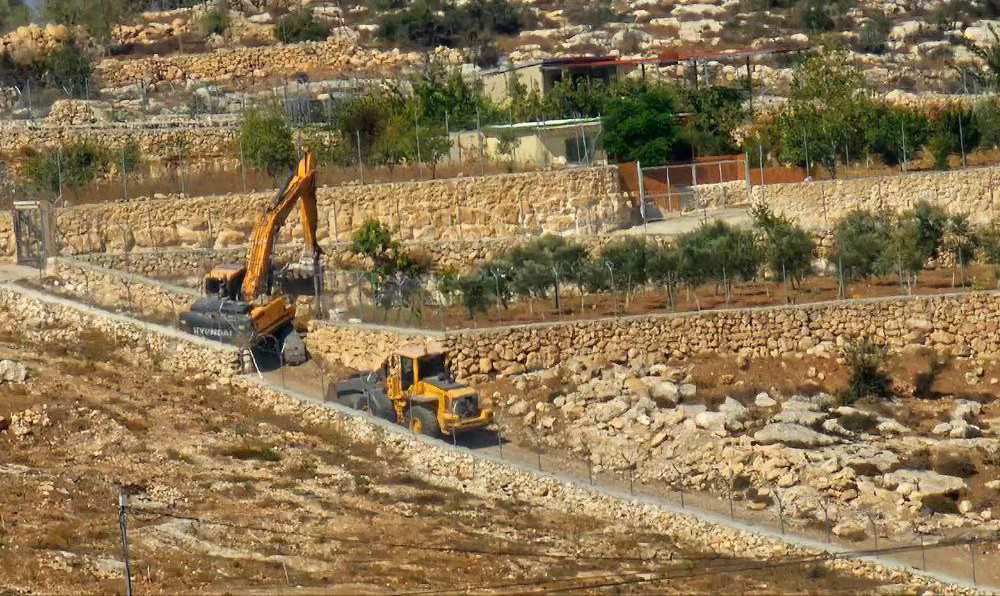09.30.2024 · 5 min reading time
September 30, 2024 · 5 min reading
Data set for 08.31.2024 to 09.30.2024
| Category | Total | 5-day avg | 30-day avg | Trend |
|---|---|---|---|---|
| Total Incidents | 53 | | ||
| Structures | 241 | | ||
| Displaced People | 725 | | ||
| Men Displaced | 219 | | ||
| Women Displaced | 206 | | ||
| Children Displaced | 300 | |
This data set runs from 08.31.2024 to 09.30.2024, covering a 30-day period. This data is for the 30 days prior to and including the publish date, not Year-to-Date. As the data points out, across Jerusalem and the West Bank, displacement has been trending upwards. This, of course, is by design.
This data only reflects administrative home demolitions in East Jerusalem and the West Bank. This doesn't include the mass demolitions of homes in the Gaza Strip, or in places like the Naqab or the Galilee.
Despite the investment of military resources in the genocide Israel is carrying out Gaza and now its escalating attack on Lebanon, Israel’s program of erasing Palestinian communities across East Jerusalem and the West Bank hasn’t slowed down over the last year.
Since January, the Israeli military has carried out 333 military operations to destroy Palestinian homes and infrastructure. This year, these operations have displaced 1,072 Palestinians across the West Bank and East Jerusalem. On average, Israel conducts 1.22 operations per day, displacing 3.93 individuals and demolishing 3.37 structures. 492 children have been displaced as a result of these operations. Nearly half of those left homeless are children.
Compared to the previous months, over the last 90 days, there has been a surge in Israeli military activities of this sort, with 142 operations leading to the displacement of 481 people and the destruction of 388 structures. The daily average operations during this time reached 1.58, and the displacement rate rose to 5.34 people per day. Structural demolitions have also escalated, with an average of 4.31 per day. While structural demolitions do not necessarily force communities’ displacement, they contribute to growing economic pressure that make remaining more difficult.
Over the last 30 days, Israel has increased the frequency of military operations, carrying out 40 operations and averaging 1.33 per day. During this period, Israel displaced 82 people while destroying 125 Palestinian homes and other structures. The daily rate of displaced individuals was lower, at 2.73 people per day, but the destruction of structures increased to an average of 4.17 per day — a reminder that much of Israel's tactics of demolishing structures is economic: the destruction of businesses, farming infrastructure, and other communal resources — such as water wells and schools.
From a decolonial perspective, these operations reflect the settler-colonial logic aimed at territorial control and the erasure of Palestinian presence. By continually displacing families and destroying homes, the Israeli military works to maintain dominance over Palestinian lands, making any future possibility of a sovereign Palestinian state even more precarious — let alone anything that resembles justice for the Palestinian community in and out of the diaspora.

Location: Al 'Aqaba village, north of Tubas city
Description: Israeli Civil Administration, along with Israeli forces, demolished two under-construction residential structures belonging to two brothers in Area C of Aqaba village, north of Tubas city, citing a lack of Israeli-issued building permits. The targeted structures were made of concrete, and measured about 150m² and 130m². The two houses were intended to be future residences for their families.
Location: Hamammat al Maleh - Al Burj, Tubas
**Description: **Israeli forces demolished four donor-funded structures in Area C of Hammamat al Maleh - Al Burj, Tubas, displacing a household of two. The demolished structures included a metal-sheet house, an external kitchen, a mobile latrine, and a solar panel system, all provided through a shelter rehabilitation project for vulnerable families. Additionally, a fence, gate, furniture, and a water tank were also destroyed.
Location: At Tur, East Jerusalem
Description: A Palestinian family in At Tur, East Jerusalem, was forced to self-demolish a 60-m² rooftop extension of their apartment due to lacking an Israeli building permit. The household of four, including two children, are now left to sort out their future.
Location: Beit Ula (Firing zone 935)
Description: Israeli forces demolished two agricultural rooms, a shade structure, and four stone walls in Beit Ula, Area C, citing "trespassing on state land." The demolition affected five families (32 people, including 17 children). Additionally, the Israeli military razed two grape arbors, six water tanks, metal fences, gates, and irrigation pipelines. In the process, the military uprooted about 190 trees.
Location: Beit Sira village, northwest of Ramallah
Description: Israeli forces demolished five livelihood and agricultural structures in Beit Sira, northwest of Ramallah, displacing four households (17 people, including four children). The structures included a 500-m² coffee shop, an animal barn with a 700-m² shelter, a 50-m² fodder and resting room, an external bathroom, and a 50-m² agricultural resting room. Additionally, 300-m² of agricultural land and five olive trees were bulldozed. Two of the structures had demolition orders from two years ago, while the others had no orders, and no legal action was taken by the families.
Your Crisis of Faith is Not My Concern (There's a Genocide Going on)
POEM: Apologies to All the People in Lebanon, June Jordan, 1982
Meet the First Tenured Professor to Be Fired for Pro-Palestine Speech
Support Sami Huraini, a Palestinian human rights defender who has been undergoing a targeted and unjust legal campaign at the hands of Israeli forces for years.
Support Momodou Taal, who is unjustly being threatened with suspension and deportation for his solidarity with Palestinians.
Continue to help Palestinians in Gaza survive Israel’s genocide by supporting the verified campaigns at Gaza Funds, or signing up for learning opportunities at Workshops 4 Gaza.
Support refugees fleeing Israel’s bombardment in Lebanon.